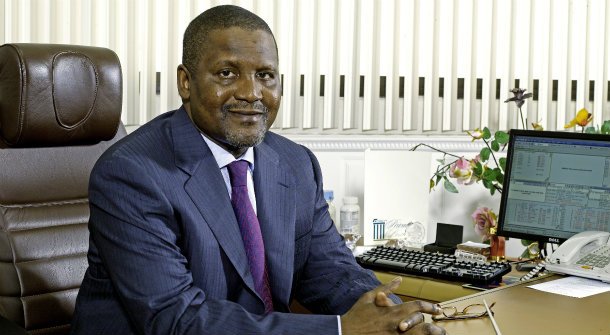 The Organisation of Petroleum Exporting Countries (OPEC) is looking at Dangote refinery, being set up by Aliko Dangote, Africa’s richest man, to drive refining capacity expansion in Africa, by 2020.
The Organisation of Petroleum Exporting Countries (OPEC) is looking at Dangote refinery, being set up by Aliko Dangote, Africa’s richest man, to drive refining capacity expansion in Africa, by 2020.
The refinery, which OPEC considers the first privately owned and operated refinery in Nigeria, is expected to refine as much as 650,000 barrels of crude oil per day.
According to the 10th edition of its World Oil Outlook (WOO), OPEC said the refinery will add to the production seen and expected in existing state-run refineries in Nigeria.
“Of several possible refining projects, one that may materialize in the medium-term is the grassroots 650,000 b/d Dangote refinery and an associated greenfield fertilizer plant in Lagos. If built, this refinery would be Nigeria’s first privately owned and operated refinery,” OPEC said.
“Projected investments in Africa through to 2021 are seen at around $20 billion. A large share of this is attributed to two projects – Dangote in Nigeria and the Sonangol’s Lobito project in Angola.”
OPEC said its “outlook is especially sensitive to the progress of the large Dangote project”.
“In summary, it is estimated that around 0.6 mb/d of new crude distillation capacity will be available in Africa by the end of 2021.
“Whether or not the large Dangote project progresses in a timely manner remains a major consideration, as it will affect how much new capacity is in fact brought onstream in the medium-term.”
OPEC says refining capacity is on the increase in developing countries, as against the developed world, with the Asia-Pacific taking the lead.
“New refining capacity continues to follow demand growth to developing regions, led by the Asia-Pacific, which is projected to add 9.5 mb/d by 2040.
“Capacity rationalization remains a long-term requirement, with some 2.5 mb/d of net refinery closures expected by 2040, an estimated 4 mb/d by 2025, and a further 5 mb/d are indicated as needed by 2040 if refining regions are to maintain utilization rates of at least 80%”
OPEC insists that “oil and gas are expected to supply around 53% of the global energy demand by 2040,” despite the drive against fossil fuels.







